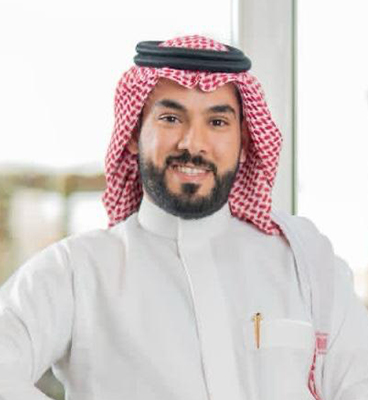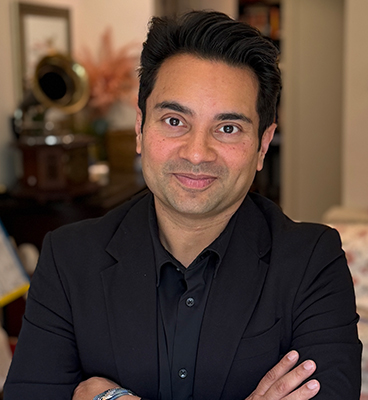
The Power of Human-Centred Leadership: Unlocking Engagement, Resilience, and Performance
Leaders today face the challenge of balancing results with empathy. How can organisations embed people-first leadership into their culture and translate it into measurable business success?
- On: September 5, 2025


Akbar Khan
Al Tayer Motors
How does human-centred leadership shape organisational success, and what practical steps can leaders take to embed it in their teams?
Human-centred leadership is not a soft or optional philosophy—it’s a performance driver. When leaders put people at the core, organisations don’t just get engagement, they get alignment, resilience, and discretionary effort. For me, human-centred leadership is about recognising that behind every KPI there’s a human being with aspirations, anxieties, and untapped potential. When leaders genuinely listen, coach, and remove barriers, employees bring their best selves to work, and that translates into innovation, customer delight, and long-term success.
Practically, leaders can embed this in three ways:
- Listen deeply and act on insights — move beyond engagement surveys to ongoing dialogues. When people feel heard, they contribute more. I would call it LIA — Leadership in Action
- Personalise growth — build skills-based pathways that respect individual strengths and future aspirations, instead of one-size-fits-all training
- Model empathy and accountability together — care for the person, but also set clear standards and goals. People thrive when expectations are both human and high
Ultimately, human-centred leadership shapes a culture where people are not managed—they are inspired. And inspired people drive extraordinary business results.
My examples would come from Simon Sinek, ALCOA, and Nelson Mandela & Marshall Goldsmith.
From your experience in the region, what are the key challenges and opportunities in fostering a human-centred leadership culture across MENA organisations?
The key challenges I see are threefold:
- Organisational Structures — the three types of companies that exist here and how they are so different from each other
- Hierarchy vs empowerment — many organisations are still rooted in traditional top-down structures, which can stifle openness and psychological safety
- Speed of change — leaders are under immense pressure to deliver results fast, sometimes at the cost of pausing to listen and nurture talent
- Cultural diversity — with workforces spanning multiple nationalities, mindsets, and generations, leaders must navigate a complex mosaic of expectations
But the opportunities are even greater:
- Young talent across the region is eager for purpose-driven leadership and growth, and they respond brilliantly when leaders invest in them
- Digital transformation and the rise of skills-based models allow us to personalise learning and leadership development in ways never possible before
- Regional ambition — from Vision 2030 to Expo legacies, organisations here have bold aspirations, and human-centred leadership is the lever to unlock that potential
With over 20 years in learning and development and employee experience, what has been your most impactful initiative, and what lessons did you take from it for future HR innovation?
If I look back at 20+ years in L&D and employee experience, the initiative I’m most proud of is enhancing the company culture towards people development and engagement.
Instead of training people for today’s job titles, we mapped skills across every role in the organisation and built pathways that allowed employees to see not only where they stood, but where they could go. I initiated a massive movement towards engaging employees in initiatives during and off working hours, for almost 6 months in a year, resulting in their personal growth, health, and cohesion, apart from building the organisation’s employer of choice branding.
The key lesson for me: HR innovation works when it is both human and data-driven. You can’t transform by just bringing in technology, nor by only focusing on culture. It’s the integration of empathy + analytics, personalisation + scale, that makes change stick.
For the future, I believe the most powerful HR innovations will be those that treat employees like athletes: constantly developing, coached for strengths, and measured not just by outcomes but by growth and readiness for the next challenge.
Don’t miss this inspiring case study, “Human-Centred Leadership: Inspiring People, Driving Performance”, from our esteemed speaker, Akbar Khan, Head of Learning, Employee Experience and Talent Management at Al Tayer Motors. We are honoured to have such an expert on board for the 16th Annual Strategic HR MENA Summit, taking place on 11 – 12 November 2025 in Dubai.
Join this highly interactive conference and seize the opportunity to network with leading cross-industry professionals.
Short Speaker BIO:
Akbar Khan is a seasoned HR professional with over two decades of experience in leading strategic initiatives across Learning & Development, Talent Management, and Employee Experience. Known for driving impactful organisational transformation, he has successfully implemented competency-based learning frameworks, digital learning ecosystems, and well-being programmes that align employee growth with business outcomes. Beyond the corporate world, Akbar is passionate about sports and lifelong learning. He actively plays tennis and padel, valuing the discipline, focus, and teamwork these sports cultivate. A history enthusiast, he also spends time exploring historical narratives and their relevance to leadership, strategy, and human behaviour.




